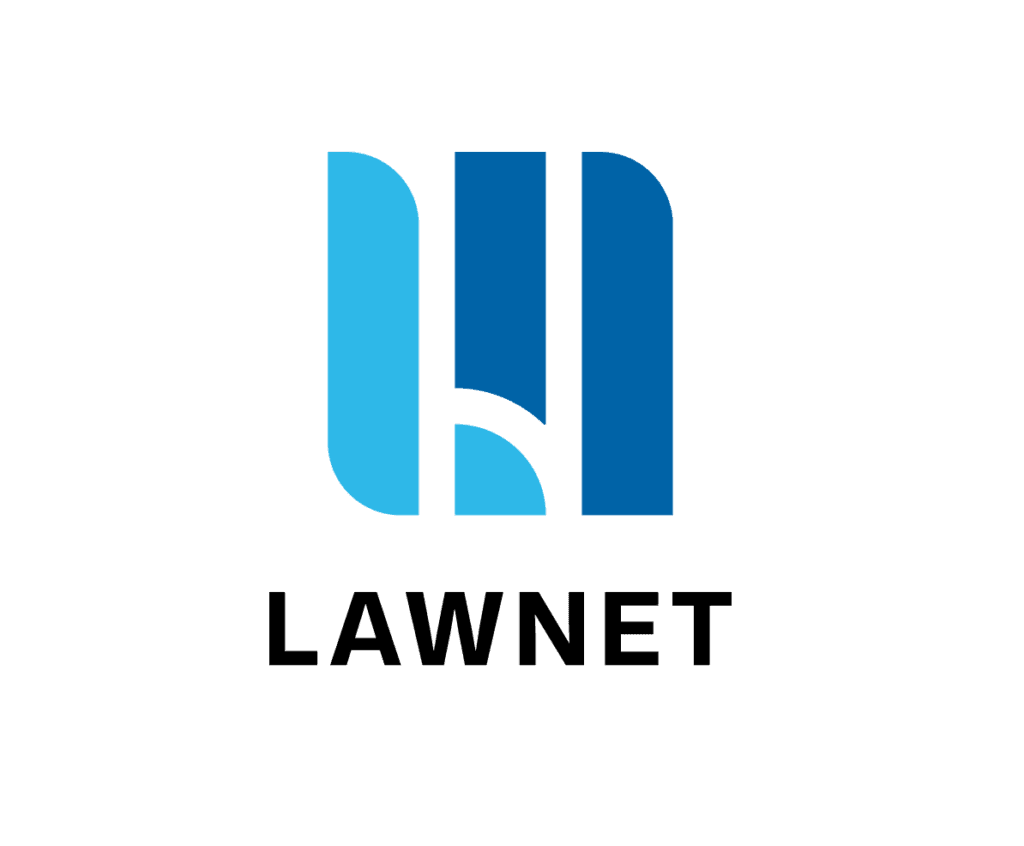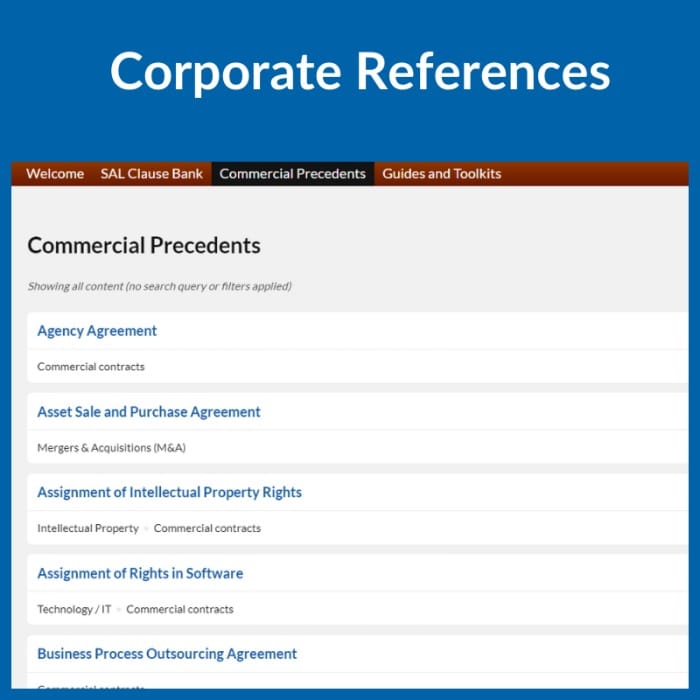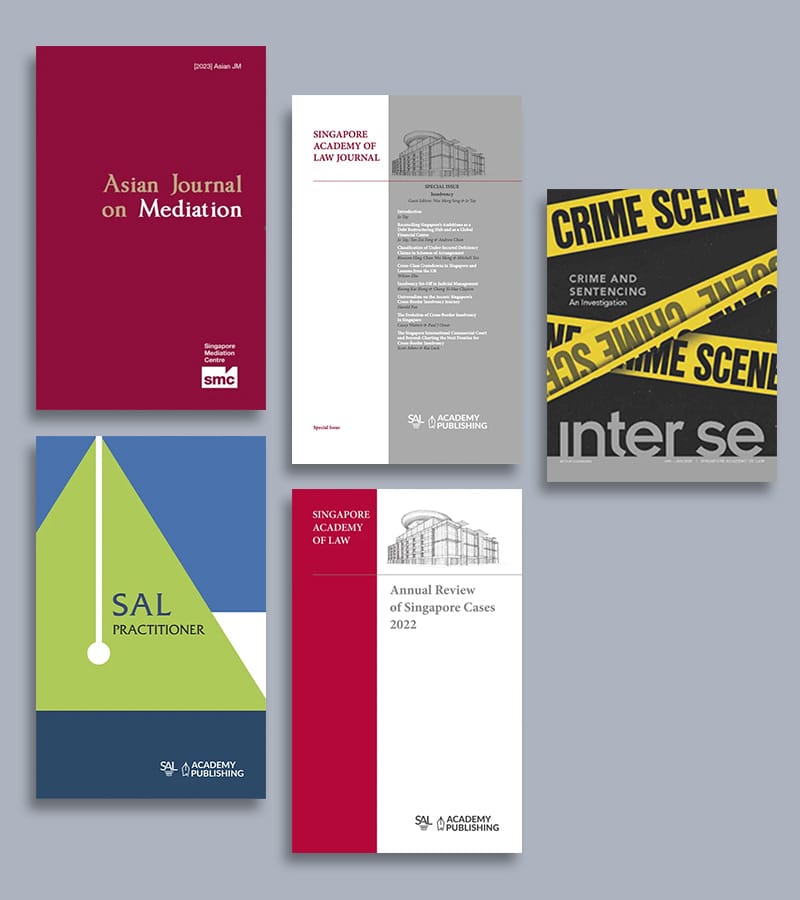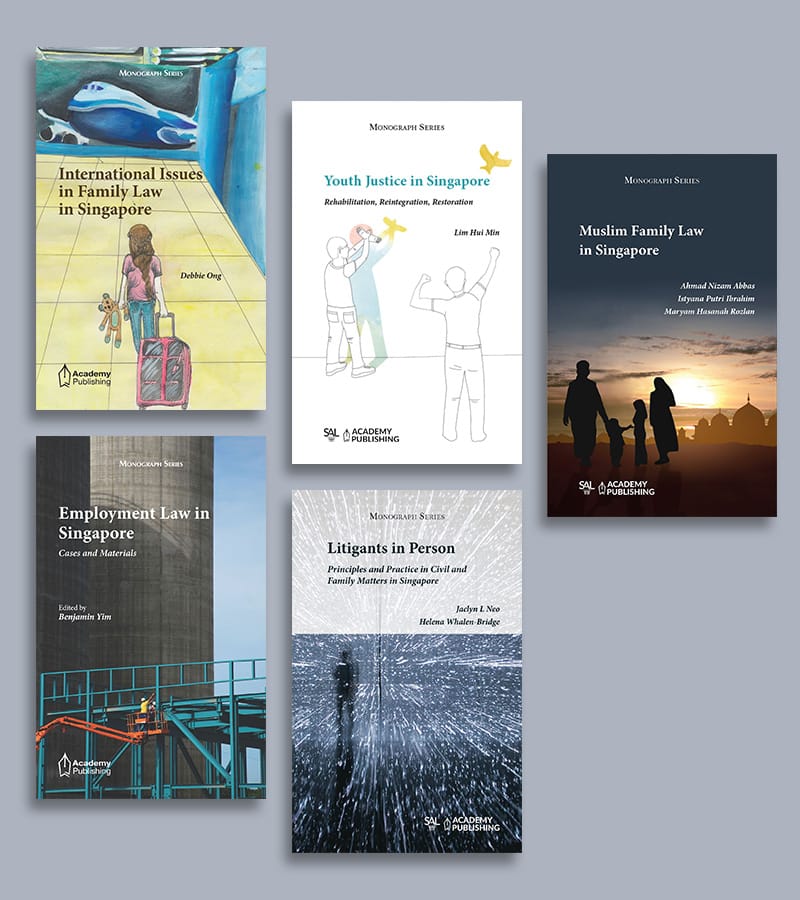Research & Publications
COMPREHENSIVE RESOURCES DESIGNED TO BE YOUR PARTNER IN KNOWLEDGE

Since 2007, SAL’s Academy Publishing has championed excellence in legal publishing. Our extensive library includes textbooks, law reports, academic journals, and other essential resources to support your learning. We streamline your exploration process and make legal knowledge accessible and affordable. This is SAL’s platform for legal scholarship.

LawNet, Singapore’s first comprehensive online legal research platform, was created to revolutionise legal practice. Today, it serves as a vital repository of resources, offering access to case law, journals, practice guides, and precedent templates across diverse areas like employment law, intellectual property, and mergers and acquisitions.
With an intuitive search engine and advanced features, LawNet enables legal professionals to conduct efficient research and stay updated on legal developments. SAL continuously enhances LawNet to meet the evolving needs of practitioners, with plans to integrate cutting-edge technologies like AI to further improve research capabilities.
LawNet also hosts key resources, including:
Precedents
A comprehensive database of curated templates and boilerplate clauses, for both commercial and litigation matters.
Law Reports
Comprehensive case law coverage, including the Singapore Law Reports, Singapore Syariah Appeals Reports and the Singapore Law Reports (Reissue).
Academy Library
An expansive collection of digital books accessible anytime, anywhere.
Asian Insights
Provides practical expertise and updates on Asia’s evolving legal landscape. Designed for corporate legal professionals navigating the complexities of the region.
Open Law
An open-access repository of Supreme Court judgments since 1965.
Intelligent Case Retrieval System
An overview of past cases with personal injury damages.
Legis
Access to Singapore statutes.

Corporate References
Corporate References provide corporate lawyers with basic guides and practical tools, including a curated database of over 100 templates from top law firms. Topics range from M & A, to employment and technology. These resources are updated regularly to ensure their continued relevance and accuracy.
Litigation References
Litigation References offers high-quality resources tailored for litigation practitioners. It includes specially curated pleadings extracted from cases published in the Singapore Law Reports since 2014 (excluding sealed, criminal, family, and originating summons cases). For taxation matters, it features summaries of taxed bills of costs and PDF documents of bills filed in Supreme Court cases from 2002 onwards, ensuring practitioners have access to reliable and practical tools for case preparation.
Registration for Litigation References will be available soon.

Academy Publishing’s Journals Online
Your gateway to a wealth of legal and academic knowledge. This platform provides instant, global access to all journals and magazine content published by the SAL, ensuring seamless availability anytime, anywhere.
Academy Publishing is dedicated to supporting authors with a faster path to publication and ensuring their research reaches a worldwide audience.
Journals Online serves as a user-friendly repository, featuring:
e-First
A pre-print module for faster publication of accepted papers.
Online Submission
Simplified submission for authors.
e-Archive
A comprehensive digital collection of all published issues.
Open Access
The SAL champions open access, providing free access to its journal content via Journals Online. Flexible hybrid open-access models are also offered to benefit authors while ensuring sustainability.
Journals Online embodies Academy Publishing’s commitment to advancing legal scholarship and connecting authors and readers worldwide.

Access to legal knowledge is a right, not a privilege. SAL’s Academy Publishing has been championing excellence in legal publishing since 2007.
Discover our extensive range of authoritative legal publications. Each series is crafted to deepen expertise and shape the future of legal practice.
Law Practice Series
Seminal works tackling core areas of legal practice.
Law Practice Casebook Series
Essential cases with expert commentary to complement the Law Practice Series titles.
The Monograph Series
Comprehensive treatises on today’s critical legal issues.
Singapore Court Series
Showcasing the Courts’ contribution to the advancement of current legal practice and understanding.
Heritage Series
A curated collection celebrating Singapore’s rich legal history.
Academy Library
Your portable legal library. Access an expansive collection of digital books anytime, anywhere.

Singapore Law Watch is a free, daily legal news service tailored for the law community in Singapore and beyond. Our team of legal editors curates content from over 30 sources, ensuring a comprehensive and reliable compilation of legal news.
With 9,000+ daily email subscribers, SLW offers multiple ways to stay informed:
Email Subscription
Delivered directly to your inbox.
RSS Feeds
For seamless updates.
Website and Mobile Apps
Accessible anytime, anywhere.
Stay ahead with SLW, your trusted source for the latest in legal developments.

Law Reform
SAL’s Law Reform Committee ensures our legal system evolves with societal needs and technological advancements, addressing gaps courts cannot adjudicate. Since 1989, its impactful recommendations have shaped key legislative changes, from modernising family law to tackling cybercrime and cross-border disputes.
2023 Issues Paper On Digital Identities and Legal Transactions
2023 Report on Bond Restructuring
2023 Report on Legislative Reforms for Residential Property Defects
2022 Guide on Collaborative Contracting in the Construction Industry
The collaborative contracting model has been successfully implemented, particularly, in public sector projects in various countries, including, the UK, USA, Australia and Hong Kong. This model is intended to address problems typically associated with the traditional contracting model that is used in Singapore. These FAQs are intended to provide a primer to and raise awareness on the collaborative contracting model. It is hoped that project participants will consider the adoption of this model for suitable projects and reap the benefits from its successful implementation.
Published January 2022
In some cases, the reports’ recommendations have been accepted by Parliament (e.g. this). Will have to check individual STATUS pages. These points will have to be copied as well, so they will be presented below the Published date, as below.
Parliament incorporated the report’s recommendations into the Protection from Harassment Act 2014 (No 17 of 2014, now Chapter 256A, 2015 Revised Edition), which was passed on 13 March 2014 and came into force on 15 November 2014.
The report has been referred to in the following works:
- Goh Yihan, “The Case for Legislating Harassment in Singapore” (2014) 26 Singapore Academy of Law Journal[Sing Acad LJ] 68 at page 88, paragraph 43, footnote 72.
- Goh Yihan & Yip Man, “The Protection from Harassment Act 2014: Legislative Comment” (2014) 26 Sing Acad LJ 700 at page 716, paragraph 41, footnote 85.
2021 Report on the Enactment of Non-Charitable Purpose Trusts
2021 Report on Criminal Liability, Robotics and AI Systems
2020 Report on Civil Remedies
2020 Report on Civil Liability for Misuse of Private Information
2020 Report on the Attribution of Civil Liability for Accidents Involving Autonomous Cars
2020 Applying Ethical Principles for Artificial Intelligence in Regulatory Reform
2020 Rethinking Database Rights and Data Ownership in an AI World
2020 Report on the Building and Construction Industry Security of Payment Act and Corporate Insolvency and Restructuring
2020 Report on Reforming Insurance Law in Singapore
2020 Report on Total Return Investment and Classification and Apportionment for Capital and Income Trustees
2020 Report on the Right of Appeal against International Arbitration Awards on Questions of Law
2020 Private International Law Aspects of Smart Derivatives Contracts Utilizing DLT
2019 Checklist when Contracting for Construction Work
2019 Report on Introducing a Statutory Variation of Trusts Jurisdiction
2019 Report on Certain Issues Concerning Costs in Arbitration-Related Court Proceedings
2018 Consultation Paper on Certain Issues Concerning Arbitration-Related Court Proceedings
2017 Report on the 1996 Hague Convention on the Protection of Children
2015 Report on Part Payments and Deposits
2015 Report on Proposals for Amending the Building and Construction Industry Security of Payment Act
2015 Report on Use of Experts in Construction Arbitration
2014 Report on Litigation Funding in Insolvency Cases
2013 Report on the Hague Convention on Choice of Court Agreements 2005
2012 Report on Reciprocal Enforcement of Maintenance Orders
2011 Report on Reforming Legal Professional Privilege
2011 Report on Right to Judicial Review of Negative Jurisdictional Rulings
2011 Report on Opinion Evidence
2011 Report on Limitation Periods in Private International Law
2010 Report on Online Gaming in Singapore
2009 Report on Powers of Attorney
2009 Report on Ancillary Orders after Foreign Divorce or Annulment
2008 Report on the Rationalisation of Legislation Relating to Leave to Appeal
2008 Report on Loss of Inheritance or Savings
2007 Report on Reform of Admissibility of Hearsay Evidence in Civil Proceedings
2007 Report on the Review of the Limitation Act (Cap 163)
2006 Report on the Review of the Parol Evidence Rule
2005 Discussion Paper on the Remuneration of Corporate Insolvency Practitioners and Certain Related Matters
2005 Report on Pre- and Post-Judgment Interest
2005 Report on Enforcement of Foreign Judgments
2004 Report on Computer Output as Evidence
2004 Report on Transfers of Civil Proceedings between Courts
2004 Report on Reform of the Law Concerning Choice of Law in Contract
2003 Reform of Certain Aspects of the Trustees Act
2003 Reform of the Choice of Law Rule Relating to Torts
2002 Report on Relief from Unenforceability of Illegal Contracts and Trusts
2002 The Impact of the Regulatory Framework on E-Commerce in Singapore: Symposium
2001 Report on Proposed Legislation to Curb Stalking
2001 Report on Reforms to the Law of Restitution on Mistakes of Law
2000 Discussion Paper on Liability for Negligently Inflicted Psychiatric Illness
2000 Consultation Paper on Limited Liability Partnerships
1999 Report on Corporatisation of Law Partnerships
1999 Report on Civil Inquiries into Mental Incapacity
1997 Report on the Status of Children Born through Artificial Conception
1997 Report on the Corporatisation of Professional Partnerships
1996 Report on Reform of the Bills of Sale Act
1994 Report on Proposed Amendments to the Carriage of Goods by Sea Act
1994 Report on the United Nations Convention on Contracts for the Sale of Goods (Vienna, 1980)
1993 Report on Review of Arbitration Laws
1991 Report on the Taking of Statements by Law Enforcement Agencies
1989 Discussion Paper on Limitation Periods for Latent Damage



What Members Say
“These guides are useful, whether you’re in practice or even a student. It provides a comprehensive overview of transactions and key considerations to take note of; a great foundational resource.”
Sharon Lau, Partner, Latham & Watkins
“The guides feature dropdowns for detailed information and are presented in straightforward, plain English. They include practical tips, such as understanding financial motivations and associated risks. This accessibility makes them particularly attractive, especially for junior lawyers and smaller firms.”
Shirin Tang, Principal, Baker & McKenzie Wong & Leow
“If I had had such easy access to precedents as a young lawyer, it would have made the world of difference to me. I would have been able to cut through a lot of the research I had to do to understand the law behind each of these clauses. It would have enhanced speed and accuracy.”
Stefanie Yuen-Thio, Joint Managing Partner, TSMP Law

